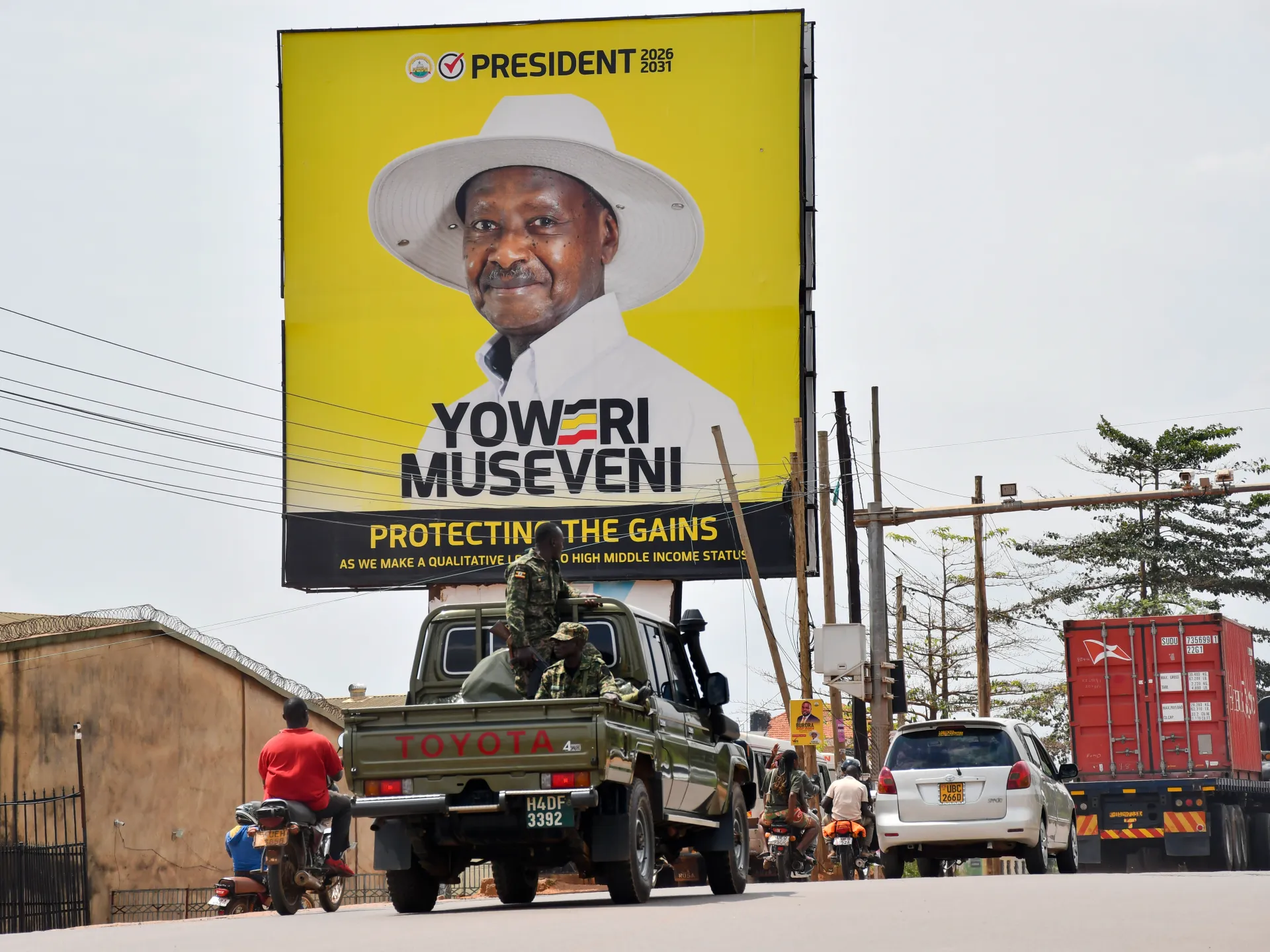Uganda’s President Yoweri Museveni wins seventh term: Electoral Commission | News
Museveni, 81, secured 71.65 percent support, electoral commission says, after contentious election campaign.
Published On 17 Jan 2026
Uganda’s President Yoweri Museveni has been re-elected to a seventh term, the country’s electoral commission has announced.
Museveni, 81, won with 71.65 percent of the vote, the commission said on Saturday.
Recommended Stories
list of 4 itemsend of list
He defeated his main challenger, 43-year-old Bobi Wine, who received 24.72 percent of the vote, according to the official results.
Museveni’s widely expected victory comes after an election campaign that the United Nations said was marred by “widespread repression and intimidation”, including a crackdown on opposition rallies.
Thursday’s election also unfolded amid a nationwide internet blackout that drew widespread criticism.
Bobi Wine, a singer-turned-politician whose real name is Robert Kyagulanyi, had claimed on social media on Election Day that “massive ballot stuffing” was also taking place.
Bobi Wine said earlier on Saturday that he had escaped a police and army raid on his house.
“Currently, I am not at home, although my wife and other family members remain under house arrest. I know that these criminals are looking for me everywhere, and I am trying my best to keep safe,” he said.
Museveni, who has been in power since 1986, has been accused of overseeing a years-long crackdown on his political opponents.
He said in the run-up to this week’s vote that he expected to easily win re-election with about 80 percent support.
